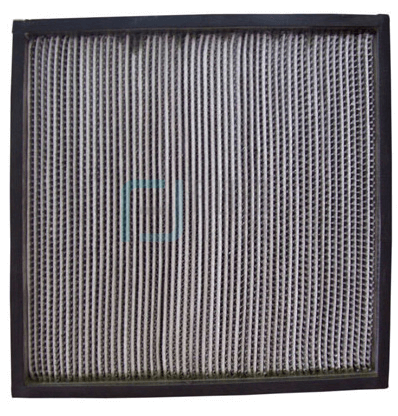When it comes to keeping your engine healthy and efficient, one component often overlooked is the air intake filter. This small but critical part ensures that only clean, dust-free air enters the engine, supporting combustion and extending the life of your vehicle or industrial equipment. Whether you’re a car enthusiast, fleet manager, or someone who simply wants to maintain machinery properly, understanding the role of an air intake filter is vital.
In this blog, we’ll explore what an air intake filter is, why it matters, the different types available, common maintenance tips, and how choosing the right one can make a real difference in performance and longevity.
What is an Air Intake Filter?
An air intake filter (often just called an air filter) is a protective barrier installed in the engine’s intake system. Its main function is to trap dirt, dust, pollen, sand, and other contaminants before they reach the combustion chamber. Without it, abrasive particles could cause significant wear, reduced efficiency, and even permanent engine damage.
Think of it as the engine’s “respiratory mask.” Just like humans need clean air to breathe properly, engines require filtered air for smooth combustion.
Why is an Air Intake Filter Important?
- Engine Protection:
Tiny particles of dust or sand can cause scratches on engine cylinders, pistons, and valves. Over time, this leads to reduced performance and costly repairs. - Improved Fuel Efficiency:
A clean filter allows the right amount of air to mix with fuel, ensuring complete combustion. A clogged filter forces the engine to work harder, burning more fuel than necessary. - Optimal Performance:
Engines that breathe freely deliver smoother acceleration and better horsepower. This is especially critical for performance vehicles and heavy-duty machinery. - Emission Control:
With proper air filtration, fuel burns more cleanly, reducing harmful emissions and keeping your vehicle environmentally friendly. - Extended Lifespan of the Engine:
Regularly maintaining your air intake filter reduces wear and tear, ensuring your engine lasts longer and performs reliably.
Types of Air Intake Filters
Not all air filters are the same. Depending on your needs, you can choose from several types:
- Paper Filters (Disposable):
- Made from pleated paper.
- Affordable and widely used in passenger vehicles.
- Easy to replace but not reusable.
- Foam Filters:
- Made of foam material.
- Often used in off-road vehicles due to their ability to trap larger amounts of dirt.
- Washable and reusable but may require oiling.
- Cotton Gauze Filters (Performance Filters):
- Typically found in performance cars.
- Washable and reusable, offering better airflow.
- Popular brands like K&N use this type.
- Synthetic Filters:
- Advanced technology with synthetic fibers.
- Designed for high efficiency and longer service intervals.
- Provide superior filtration and airflow balance.
Signs Your Air Intake Filter Needs Replacement
A clogged or dirty filter can compromise your vehicle’s performance. Look out for these warning signs:
- Reduced acceleration and sluggish engine response.
- Decreased fuel efficiency.
- Dark smoke from the exhaust.
- Unusual engine noises.
- Check engine light turning on.
- Visible dirt or debris when inspecting the filter.
If you notice any of these symptoms, it’s time to check and replace your filter.
How Often Should You Replace an Air Intake Filter?
The replacement frequency depends on usage and environment.
- Normal driving conditions: Every 12,000–15,000 miles (20,000–24,000 km).
- Dusty or off-road environments: More frequent replacement is necessary, sometimes as often as every 6,000 miles.
- High-performance vehicles: Check more often to maintain maximum power output.
Always follow the manufacturer’s recommendations in your vehicle or equipment manual.
Maintenance Tips for Air Intake Filters
- Regular Inspection:
Check your filter during routine oil changes. A quick visual inspection can reveal if it’s clogged. - Cleaning (Reusable Filters):
For washable filters, use a filter cleaning kit to remove dirt. Allow them to dry completely before reinstallation. - Avoid Over-Oiling:
If you use an oiled filter, apply only the recommended amount. Too much oil can damage sensors in modern vehicles. - Use Genuine Replacements:
Always choose quality filters from trusted manufacturers. Cheap alternatives may not fit properly or provide adequate filtration.
Benefits of Upgrading to a High-Performance Air Intake Filter
Many vehicle owners opt to upgrade from stock filters to performance-grade options. Here’s why:
- Better Airflow: Enhances horsepower and torque.
- Reusable: Washable filters save money over time.
- Durability: Designed to last longer, especially in demanding environments.
- Fuel Savings: Improved combustion reduces overall fuel consumption.
If you’re someone who values both performance and long-term savings, investing in a high-performance air intake filter could be worthwhile.
Applications of Air Intake Filters Beyond Automobiles
Air intake filters are not limited to cars. They play a critical role in:
- Heavy-duty trucks and buses: Protecting large diesel engines.
- Construction equipment: Preventing dust damage in excavators, bulldozers, and cranes.
- Industrial machinery: Ensuring compressors, generators, and turbines run smoothly.
- Motorcycles and ATVs: Supporting performance in compact, high-RPM engines.
This makes air intake filters a universal necessity across industries.
Choosing the Right Air Intake Filter
When selecting a filter, consider:
- Compatibility: Ensure it fits your engine model.
- Driving Conditions: Off-road vs. city driving require different filters.
- Budget vs. Longevity: Disposable filters are cheaper upfront; reusable filters save money long-term.
- Brand Reputation: Established manufacturers guarantee quality and durability.
Conclusion
The air intake filter may seem like a small component, but its impact on performance, efficiency, and longevity is huge. From protecting your engine to reducing fuel costs and emissions, a well-maintained filter is essential for vehicles and machinery alike.
Whether you stick with standard paper filters or upgrade to high-performance washable ones, the key is regular maintenance and timely replacement. By doing so, you ensure your engine breathes clean air, delivers optimal performance, and runs smoothly for years to come.



